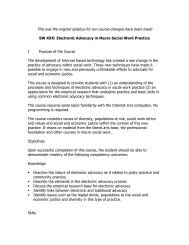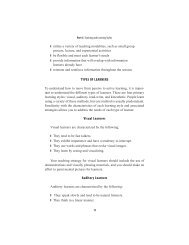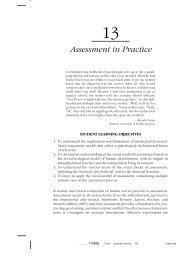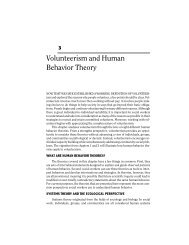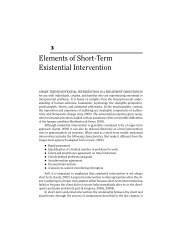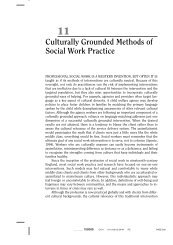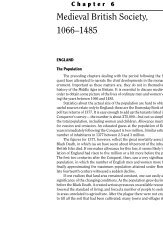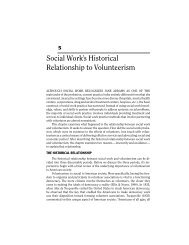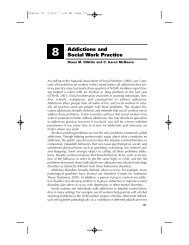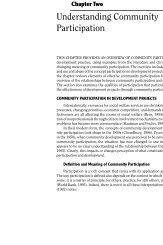Society and Economy in England, 1715–1763 - Lyceum Books
Society and Economy in England, 1715–1763 - Lyceum Books
Society and Economy in England, 1715–1763 - Lyceum Books
Create successful ePaper yourself
Turn your PDF publications into a flip-book with our unique Google optimized e-Paper software.
58 Part I The Age of the L<strong>and</strong>ed Oligarchy<br />
The Warrener, by George Morl<strong>and</strong>. In this draw<strong>in</strong>g we have a glimpse of the rural labor<strong>in</strong>g<br />
poor—<strong>in</strong> this case a rabbit hunter <strong>and</strong> his family.<br />
onto the common to forage; to graze cows <strong>and</strong> sheep; or to dig clay for mak<strong>in</strong>g<br />
bricks. Such rights often were decisive for cottagers <strong>and</strong> their families between survival<br />
<strong>and</strong> starvation; thus, the customary rights govern<strong>in</strong>g the common or waste<br />
l<strong>and</strong> were carefully def<strong>in</strong>ed <strong>and</strong> zealously defended.<br />
The system as a whole was <strong>in</strong>efficient. Not only did millions of acres lie fallow<br />
each year but also tenants <strong>and</strong> laborers had to go long distances from strip to strip.<br />
One Buck<strong>in</strong>ghamshire farmer, for example, held 2 1/2 acres, which were divided<br />
<strong>in</strong>to twenty-four strips scattered among different fields. It was difficult to experiment<br />
with new crops or techniques, to carry out systematic fertiliz<strong>in</strong>g of the fields,<br />
or to improve the quality of the livestock. Indeed, it was difficult to keep the cattle<br />
out of the fields or to keep a large number of livestock alive over the w<strong>in</strong>ter. Yields<br />
were therefore low—perhaps two bushels per acre <strong>in</strong> wheat. Nevertheless, agricultural<br />
production <strong>in</strong>creased dur<strong>in</strong>g the first half of the century, partly because of<br />
advances <strong>in</strong> the more modern sector of farm<strong>in</strong>g (see Chapter 10) <strong>and</strong> partly because<br />
of two decades of excellent harvests <strong>in</strong> the 1730s <strong>and</strong> 1740s. Engl<strong>and</strong> for a time had<br />
a surplus of wheat for export. Food prices thus were relatively low, <strong>and</strong> this fact left<br />
thous<strong>and</strong>s of British consumers with money after their food purchases to spend on<br />
other goods. This happy circumstance would eventually prove to be of enormous<br />
significance. Meanwhile, to most observers, the green fields of Engl<strong>and</strong> seemed<br />
unusually prosperous <strong>and</strong> productive. As the novelist Tobias Smollett wrote: “I see



